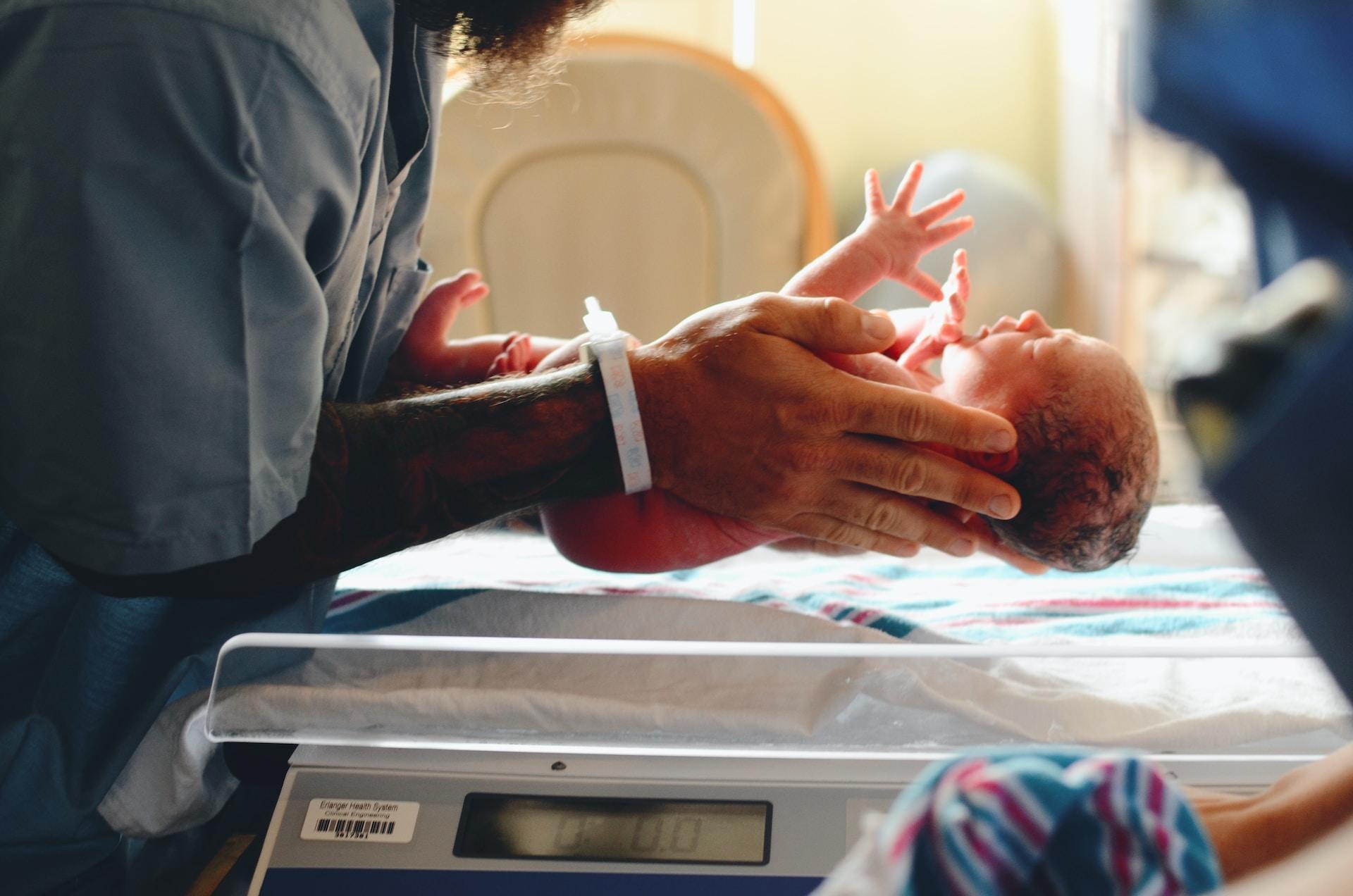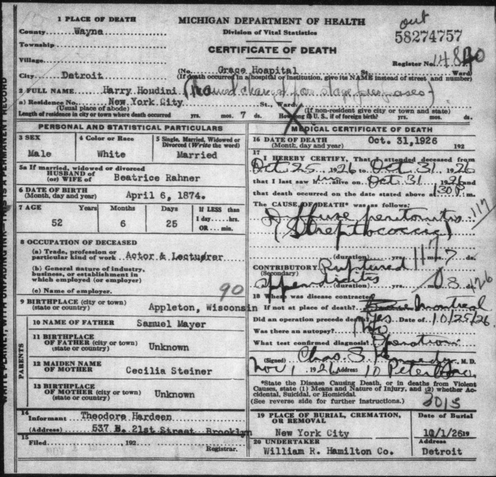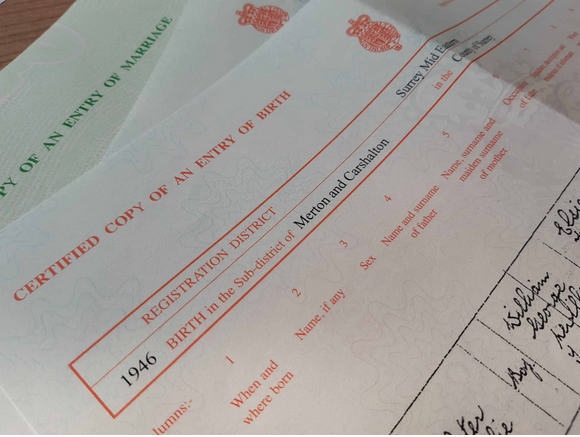Birth Records: Cornerstone for Genealogy Research

In this article we are going to find out more about birth certificates, the cornerstone of genealogical research. It is the first step in the path of human life and starts the story of all of us.
What Is a Birth Certificate?
A birth certificate is a vital record created for the government and for ongoing identity purposes of an individual on the event of their birth. This may exist as an original copy of the document or as certified copies.

Birth certificates can be varied and contain different information depending on the country the person is being recorded in. The names of parents are commonly recorded in the document along with some biographical details about them.
The event of a person's birth is often verified on these certificates by an attending doctor or midwife and will include details of when and where the event took place.
Why Are Birth Certificates Important?
Anyone who has had to apply for a tax number, government issued ID or a passport likely knows that they needed their birth certificate to help establish proof of who they are. To living individuals it is an important document to establish their identity.
Birth certificates are equally important to genealogists who can make use of these documents to learn more about a person's family history. As mentioned it is the first document on which the official existence of any human will appear. Tracing birth certificates for ancestors may tell us who their parents were, where their parents came from and of course when and where the person themselves were born.
What Is Recorded on a Birth Certificate?
This may vary depending on the issuing body but as an example a US issued birth record might include the following details:
- Full name, spelled out including the first, middle, and last names
- Place of birth: city, country, and state
- Date of birth, which can also include the time
- The child’s sex/gender
- Details about the birth: single birth, twins, triplets, number of previous children born to mother etc.
- Father’s full name
- Birth location of the father
- Birth date of the father
- Mother’s full name, along with her maiden (unmarried) name
- Birth location of the mother
- Birth date of the mother
- City, country, and state of residence of the birth parents
It is important to note that some US states may not include all of these details.
History of Birth Certification
There has been some form of recording for births in almost every civilization throughout human history but the more organized idea of government issued certificates is relatively new. Recording births eventually became important for taxation purposes and to determine potential military manpower.
This is why governments started to take a hand in recording births and issuing certificates of these events to the person born. It was the United Kingdom who first mandated the collection of birth data on a national level in 1853.

The United States however did not instigate a standardized system of birth recording until 1902. Other countries would gradually follow suit to differing levels. The basic concept for birth certificates is for a record of birth to be stored with a government agency who will issue a certified record either original or copied on request by the parents or the individual as they need it.
The United Nations Convention on the Rights of the Child states that "The child shall be registered immediately after birth and shall have the right from birth to a name, the right to acquire a nationality...". Some 191 countries ratified this convention but still millions of children around the world are born without creating such a record.
How Were Births Recorded Before Birth Certificates?
The answer to this depends on the country but generally speaking the registration of births prior to government mandated programs would occur in church records. Birth, marriage and death records were often recorded in specific church archives and still are today.
Local churches in fact are a great resource when trying to track down major life events in our ancestors' history. If they were known to ascribe to a particular religion the births, marriages and deaths in the family will likely have been recorded in the written church records of the house of worship they attended regularly.
Proof of Citizenship
In a world where migration has been common over the past few hundred years, birth certificates have become important in proving the nationality of an individual. This became especially important in the US during World War II and the years following.
Employers in certain industries would require proof that prospective employees were US citizens. The problem was that most people did not have a copy of their birth certificate either because it was lost or they were born prior to the certificates being compulsory.
Thousands of US citizens had to apply for state issued birth certificates to prove their eligibility to work. This caused such a log jam in the workforce that eventually the War Manpower Commission had to remove the requirement to show a birth certificate as proof of citizenship.
Can Birth Certificates be Changed?
An interesting question that genealogists should be aware of is whether or not birth certificates can sometimes be changed. This is rare but depending on the issuing body there may be legitimate reasons for alterations to be made to a birth certificate.
Sometimes the initial reported information for example may have been wrong and require an official change of the original record. You may see legal name changes through adoption creating a name change on a birth record and in some places in recent years changes to reported gender.
Each issuing body will have its own rules regarding what can be changed and what reasons are acceptable for such changes.
Final Thoughts
Birth certificates may have only been mandatory for a relatively short period; they still cover several generations of some families. They are the cornerstone of the research process on any individual we might encounter in our most recent family tree.
Link To or Reference This Page
We spent a lot of time downloading, cleaning, merging, and formatting the data that is shown on the site.
If you found the data or information on this page useful in your research, please use the tool below to properly cite or reference Name Census as the source. We appreciate your support!
-
<a href="https://namecensus.com/blog/birth-records-cornerstone-for-genealogy-research/">Birth Records: Cornerstone for Genealogy Research</a>
-
"Birth Records: Cornerstone for Genealogy Research". NameCensus.com. Accessed on April 27, 2024. https://namecensus.com/blog/birth-records-cornerstone-for-genealogy-research/.
-
"Birth Records: Cornerstone for Genealogy Research". NameCensus.com, https://namecensus.com/blog/birth-records-cornerstone-for-genealogy-research/. Accessed 27 April, 2024
-
Birth Records: Cornerstone for Genealogy Research. NameCensus.com. Retrieved from https://namecensus.com/blog/birth-records-cornerstone-for-genealogy-research/.
